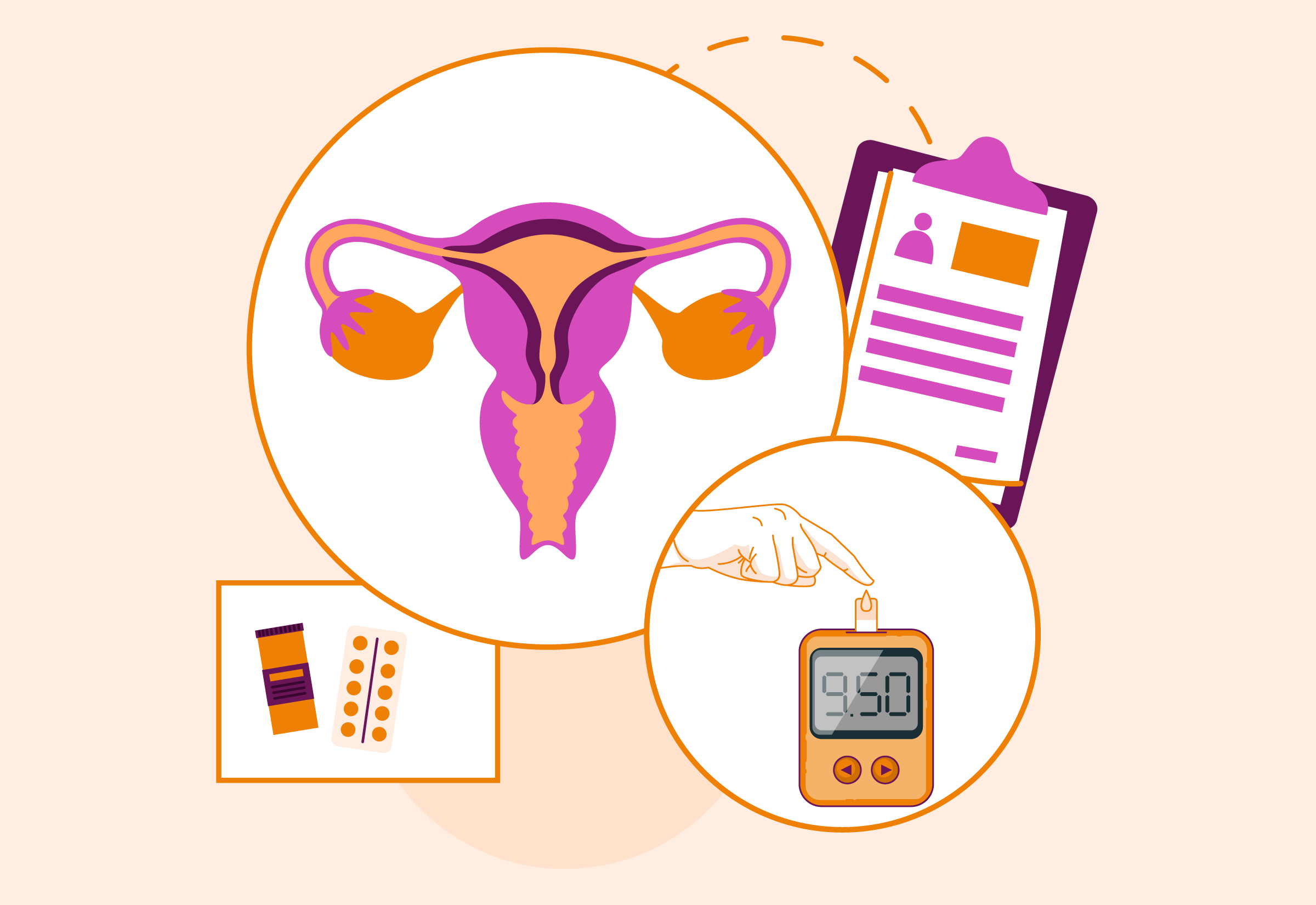How Does Diabetes Affect Fertility In Men And Women?
Diabetes can impact fertility by compromising reproductive health in both males and females. The primary factor behind the failure or delay of implantation and pregnancy is the hormonal disruption caused o by diabetes. Diabetes damages sperm, eggs, and embryos, causing DNA deletions and genetic mutations. Approximately 1 in 11 Indians are estimated to have diabetes, making India the second-highest prevalence worldwide. Diabetes is a condition that develops slowly and discreetly harms your general health and it also impairs your fertility.
To improve your reproductive health, you can consult an infertility specialist.
Diabetes and Female Infertility
Diabetes is one of the many factors that can influence a woman’s fertility. Low fertility rates can be caused by autoimmune illnesses, PCOS (polycystic ovarian syndrome), problems from uncontrolled diabetes or any chronic illness etc.. Being underweight and overweight both might also contribute to low fertility rates.
There are two forms of diabetes, Type 1 and Type 2. In Type 1 diabetes the body does not produce insulin to metabolize sugar and the blood sugar levels are increased. In Type 2 diabetes normal levels of insulin is produced by the body but there is insulin resistance, that is higher level of insulin is required to metabolize sugar. Since, the level of insulin is less than the demand of the body, it gives rise to high blood sugar levels. In order to conceive naturally, maintaining normal blood sugar levels is essential. Another form of diabetes which develops during pregnancy and blood sugar levels revert to normal after delivery is called Gestational diabetes mellitus.
While it’s true that many women with diabetes can get pregnant easily, diabetes can occasionally make it difficult for a woman to get pregnant. Doctors advise women with diabetes to take extra care to reduce their risk of complications during pregnancy because of this.
- Women who have hyperglycemia (high blood sugar) during in the early stages of pregnancy are five times more likely to experience complications difficulties, such as congenital anomalies, first trimester abortions, missed abortions. In advanced gestation increased blood sugar levels may result in intrauterine growth retardation (low birth weight) and even sudden intrauterine death.
- Women with gestational diabetes are more likely to develop diabetes later in life, and are at higher risk of developing diabetes during the next pregnancy. They are also at a twofold higher risk of acquiring hypertension in late pregnancy.
Doctors claim that women with diabetes typically do get pregnant. However, it frequently leads to miscarriage even before they begin to realise that they are pregnant. The disease compromises egg quality, leading to poor-quality embryos. In some women with diabetes, reduced blood flow to the uterus lowers the chances of implantation.
Related: How To Get Ready For A Healthy Pregnancy After Miscarriage
Diabetes & Male Infertility
Men with diabetes may experience problems conceiving. In actuality, type 2 diabetes affects men more frequently as compared to women. It can cause erectile dysfunction in men, which may be related to infertility
Male fertility can be impacted by diabetes in a number of ways, including decreased sperm quality, erectile dysfunction, ejaculatory dysfunction, abnormal or malformed sperm, retrograde ejaculation.
A study compared sperm quality in diabetic and non-diabetic men. It found that non-diabetic men have 25% more sperm than diabetic infertile men. Men with diabetes are also more likely to have DNA damage in their sperm. Evidence shows diabetes increases miscarriage and birth defects in women and hinders conception in men.
Related: How can Male Infertility be treated?
How You Cure Infertility Along With Diabetes?
If diabetes is making it hard to get pregnant, in-vitro fertilization (IVF) can help. Your infertility specialist will tailor the treatment for you.
Experts say pregnancy is possible with well-controlled diabetes and a healthy weight. You and your partner can both visit the best IVF centre in India for the right advice and medical assistance. Your IVF specialist may carry out sperm retrieval techniques like TESA or micro TESE for male infertility if required. They can perform assisted laser hatching, in-vitro fertilization, or intrauterine insemination for female infertility based on the diagnosis.
Intracytoplasmic sperm injection (ICSI) is useful for both male infertility like in cases with decreased sperm count, motility or morphology and in female infertility where the number of eggs are less.
Finally, treatment only works when you and your partner stick to the fundamental rules, such as eating the appropriate foods, exercising frequently, maintaining a healthy weight, and avoiding excessive stress.

